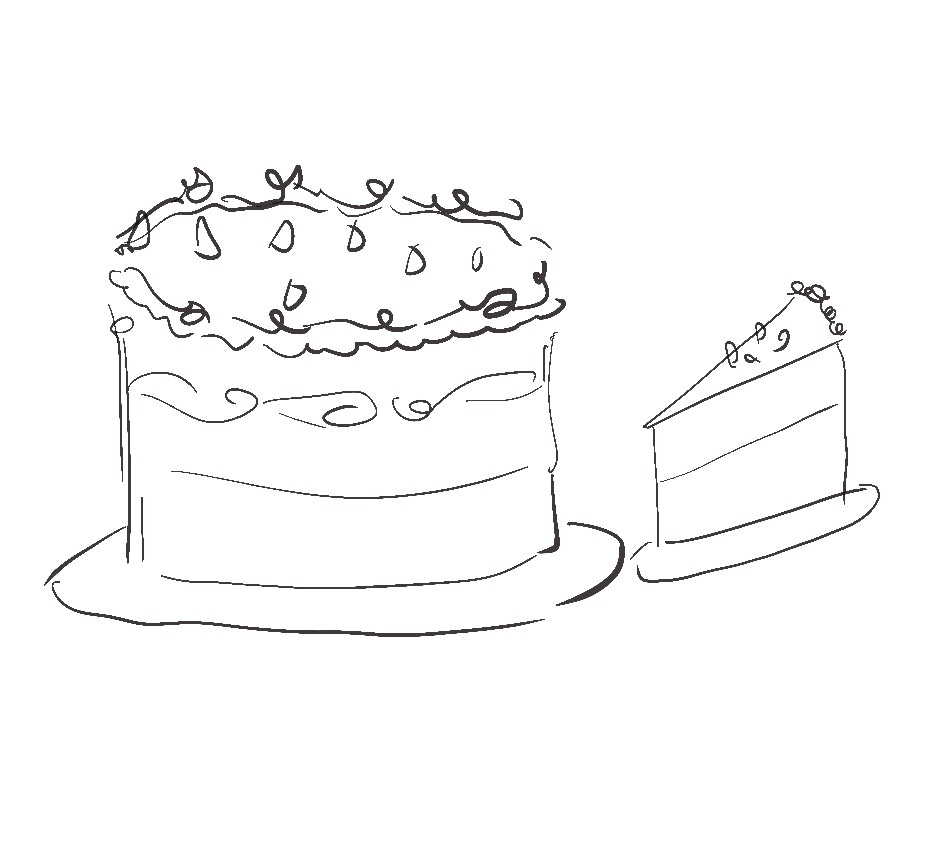Dear Friend,
I hope the weather is more spring-like where you are than it is here in Paris. Today’s grey and drizzly performance has been positively London-like!
Thank you to all those who wrote back to my last letter about my trip to Malmö and my impressions of Swedish culture.
I was relieved to have responses from real Swedes, who confirmed that what I wrote was mostly accurate. Linn, a Swedish friend in Paris said:
“I can confirm all your observations and would just like to add one thing.
The Jantelag (a Scandinavian cultural norm by which one individual should not be seen to stand out or show off from the crowd-) is often debated in Sweden, as many feel it might be restricting people from coming forward when needed for fear of seeming to tout one’s own horn.”
Pen Friend
lives in Lund, just fifteen minutes from Malmö and is, like me, a foreigner living in a European country. Susanna also brought up some of the less aspirational aspects of Swedish culture.“Much is true, but I am absolutely fascinated by the outside view of Sweden and Scandinavia as endlessly rational and civilised. I think Sweden has aspects that make you think, "Ah! This is the way to live!" and aspects that make you think, "WTF?”… There is a downside to Jante, I've been told, where exceptions get squished, and it is also very hard for outsiders to get jobs here.”
When I was in Sweden, my friend Franny also told me about the downsides of Swedish culture. She agreed with both these correspondents that the admirable principles of fairness and conformity can also result in a lack of connection and self-expression, and potentially alienation for those who are different.
In recent years the country, which has historically been known for its humanistic refugee policy, has faced internal divisions following a rise in immigrants after 2014, in particular Syrians, Iraqis and Eritreans.
In 2022, the far Right party Sweden Democrats finished second in the general elections and now wields significant power after a deal with the Moderate ruling party. It’s not all saunas and sunshine, by any means.
Pen Friend Lauren wrote back last week saying:
“It’s easy to look at another culture and think it might be better; it’s just different with its own unique qualities both positive and negative.”
It is quite true that no country is perfect. A wise therapist once said to me the amazing line: “The perfect man is two men”. She was not promoting polyandry (though I’m sure she wouldn’t judge!): she was saying that exactly what you may like about a person is the other side of the coin of exactly what you find challenging about them.

One person may give you adventure and spontaneity, but not be very reliable'; another might give you intellectual conversation but won’t provide many LOLs.
I find that my wise counsellor’s words also apply to my relationship with French culture. Some of the things I don’t like are simply the flip-side of the things I like.
I like that French is a poetic and expressive language that’s beautiful to the ear. The flip-side is, the language takes a long time to learn and it’s still easy to make mistakes. Also, sometimes a whole sentence can sound beautiful but mean almost nothing.
I like that the people here are more emotional and easier to read than Brits, but the communication style can also be intrusive and aggressive, as I’ve written about in our letters before.
Like the Swedes, the French also value rituals and a sense of tradition, but this can also result in hostility to perceived outsiders.
I like that eating is highly valued in the culture here and that the food is delicious but… oh ok no, it doesn’t work for the food. The food is great.
AI Vs the theorbo
On Saturday I had a meal with a former senior colleague at The Telegraph from when I worked on the Travel desk there. I hope he won’t mind me writing that when I started the job, I initially thought we would have little common ground because he would say things like: “Argos! Does anyone actually shop there?!”.
Soon though, we bonded over a shared love of French culture. He encouraged me to start writing short articles about Paris and offered me valuable feedback on how to make small changes that improved the writing immeasurably. I would not say he is the most woke man in the world, but he is fundamentally open-minded, curious and kind.
We caught up about the last few years since I left London, as well as current happenings in Paris and the book he is writing. As it seems to a lot at the moment — especially between writers and people in creative jobs — the conversation turned to generative AI.
My former colleague asked me if I was worried about the effect of tools like ChatGPT on my work.
The problem with conversations like these is that any attempt you then make to say something nuanced about AI not being the end of every art form inevitably sounds grasping and deluded!
It is certainly the case right now that there is still an uncanny feel to the language and the imagery produced by AI-powered tools. But I think this is likely to change quite quickly. I think the technology can already produce writing for utilitarian purposes quite efficiently.
Nonetheless, I can’t see how there won’t continue to be a place for the exploration of human experience, analysis and knowledge (through conversations, curious first-hand reporting) and expression of human subjectivity (through art of all kinds).
The advance of technology has never necessarily entailed the extinction of what went before. Cameras did not kill painting and factories did not kill hand-thrown pots, for example. I believe we cherish made items so much because they feel like a tangible manifestation of connecting with another person.
Even if I’m entirely wrong, I prefer to remain agnostic on the subject as long as we don’t know what we don’t know.
ALSO, if ever there was proof that efficiency is not always the marker of enduring pertinence: last night I went to see a friend play as part of an orchestra at the Art Deco Théâtre des Champs Elysées on Avenue Montaigne. The musicians played pieces from the Renaissance on period instruments, and among them I spotted what looked to me like an almost alarmingly long guitar.
Thanks to my friend Linn (the same Swede quoted above, who is also a concert violinist), I learned that the audacious instrument in question is called a theorbo, and it’s a kind of extra-long lute. Honestly, if theorbos can still exist, there’s hope for us all yet.
Thirty-second book club
A little while ago my brother very thoughtfully gifted me the book ‘The Seine: The River That Made Paris’, written by Elaine Sciolino, a New York Times writer who lives in Paris. I started reading this week. The engaging book explores the history and culture of the Seine, the picturesque river that bisects the city.
People are talking about the river a lot just now in the build-up to the Olympic Games this summer. Parisians, with characteristic scepticism, are convinced the Games will make their city (even more?!) chaotic and stressful. Many are planning to leave town (not least because they can make a pretty penny renting out their homes), and almost everyone doubts that the Seine will be safe to swim in for the events, as the city has promised. I, for one, will be staying! (Though perhaps not swimming in the Seine just yet).
Thank you for reading this letter about cultural polyamory, plus AI and baroque instruments.
As ever, if you enjoyed this letter please consider clicking on the heart at the bottom and sharing it with your friends and online disciples.
Please do write back if you feel moved to. It’s always great to hear from a Pen Friend.
Yours,
Hannah






So right about the flipside! I find that about so many things... I have a sort of multi-European life (British in Sweden, married to a Greek, lived a long time in Germany, studied other European languages at university) and I don't believe in utopias but also love Europe for the differences and similarities.
Super read Hannah! Perspective is such an individual thing isnt it? I think your writing is succinct and beautifully descriptive, something AI will have a problem replicating( at least for now)
You manage to convey perspectives that we all seem to share, for instance feeling both enamoured of a place and culture but also disconcerted and somewhat confused by some aspects of it.
I remember when " kindle " came out I thought that would be the end of physical books but people are buying more books than ever before! Same with " Grammarly" in my mind, it would be Akin to me having " Sciencely" and getting AI to convince some poor Professor of Physics that I am a prospective boffin ,by duping my CV with fake info.
As for French food? Ahhh you are so right Hannah, theres nothing to fault is there? Im popping over next month and fully intend to indulge to the max.
Look forward to your next penfriend, xx